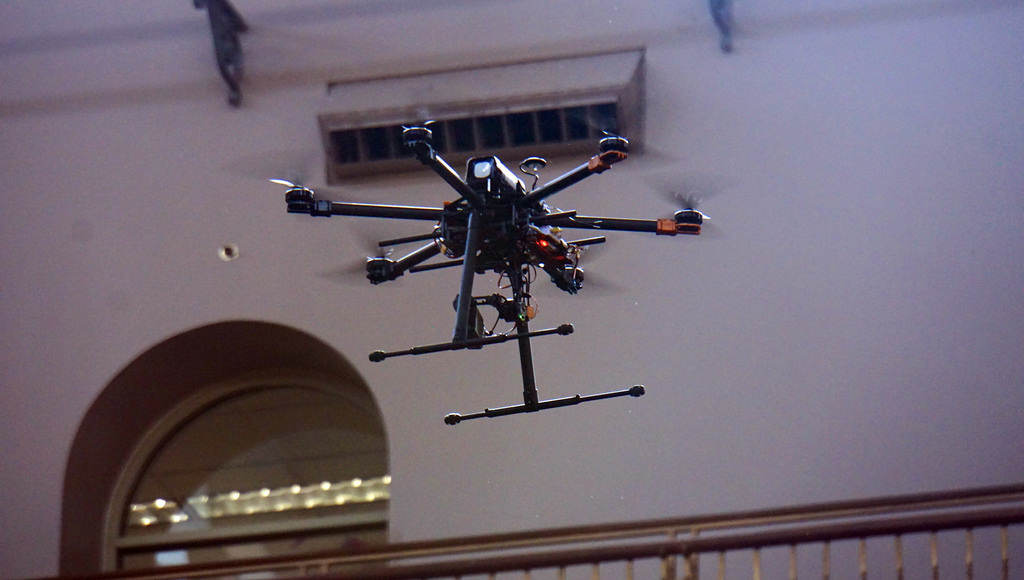| The day may come when the feisty folks of Deer Trail, Colo., look like the most far-sighted people of their generation. I’m talking about the ones who wanted to issue hunting licenses to shoot drones out of the sky. The idea was defeated in a referendum last year — the final gasp of resistance to a technology that surely soon will wash over us. |
| | History teaches that virtually every new breakthrough that streaks through the sky trails clouds of both promise and dread. This one, however, is particularly troubling. Two things in recent days have brought this into some focus. Last weekend, the FAA issued a draft of rules to govern the private and commercial use of drones. The media centered its attention on how these might hinder Amazon, pizza delivery companies and other commercial ventures from using unmanned aircraft to deliver products. Expect the rules to evolve and allow greater leeway as the technology improves. Then, later in the week, the White House convened a summit seeking ways to battle extremists and terrorists worldwide. The two are not unrelated. Pizza deliveries have nothing to do with terrorism, unless the thing being delivered is actually a bomb. That is not a wild fantasy. It would be not only naïve but historically ignorant to assume that the United States will forever remain the only power that uses drones to kill suspected enemies, or to underestimate the creativity of terrorists whose predecessors once commandeered jetliners. The FAA may impose harsh penalties on anyone in the future who does as a drunken government employee did last month and crashes a drone onto the White House lawn. But terrorists don’t care much about rules, and there is little reason to believe an ISIS sleeper cell wouldn’t try to do something similar if it could. Not all solutions to this problem are military. Of all the quotes to emerge from the summit, this one by President Obama, in a CNN report, was the most insightful: "We know from experience that the best way to protect people, especially young people, from falling into the grip of violent extremists is the support of their family, friends, teachers and faith leaders. “Groups like al Qaeda and ISIL exploit the anger that festers when people feel that injustice and corruption leave them with no chance of improving their lives." Family, friends and religious leaders do indeed hold the key to hope and purpose. The president was right to emphasize that point. But when it comes to the “anger that festers” in the face of perceived injustice, military drones can play an unwitting role. Writing in The New Yorker last fall, Steve Coll, told how young men he met in Islamabad described the long and maddening “prelude to violence” posed by a drone attack. “People below looked up to watch the machines, hovering at about 20,000 feet, capable of unleashing fire at any moment, like dragon’s breath.” Drones are much more efficient than traditional bombers at killing targets without harming bystanders. But one of the men told Coll, “They turned the people into psychiatric patients” as they hovered endlessly in the skies. Surely, such a thing can breed even more enemies. In this light, perhaps the most important drone-related report last year had nothing to do with the FAA or Amazon. It was issued by the Stimson Task Force on US Drone Policy, which included former senior officials in the CIA, defense, state and commerce departments. Among the report’s recommendations was to transfer drone strikes from the CIA to the military, and to develop rules of engagement that an independent commission could monitor. The idea is that when other nations or organizations begin using drones as weapons, as they surely will, they can’t simply use the actions of the U.S. as a pretext to their own brand of terror. Such rules are every bit as important as deciding whether to deliver pizza through crowded skies. The United States ought to set the tone for restrained use of a deadly new twist on war. Ultimately, rules can’t protect us as well as strong families, friends and faith communities. But they would be better than granting everyone a hunting license. |


 RSS Feed
RSS Feed

